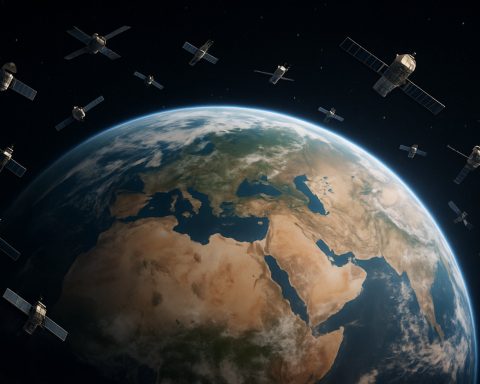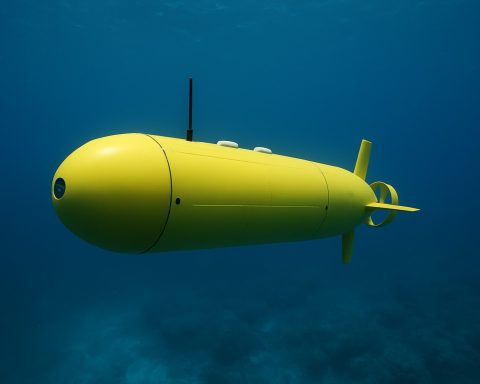- Porsche is innovating in sustainable practices with a focus on recycling high-voltage EV batteries.
- Through mechanical shredding, used batteries are transformed into “black mass,” rich in valuable elements like nickel, cobalt, manganese, and lithium.
- The refining process recovers high-purity materials, aligning with Porsche’s commitment to quality and luxury.
- This initiative supports Porsche’s long-term vision of a circular economy and strengthens its supply chain amid global uncertainties.
- Porsche plans to integrate recycled content into new battery cells, aligning with future EU battery regulations and sustainability goals.
- The project exemplifies Porsche’s dedication to responsible resource use and setting a benchmark for the automotive industry.
The roar of a Porsche engine is a symphony for automotive enthusiasts, but beneath the sleek exterior, a quieter revolution is afoot—a commitment to sustainability that promises to redefine the future of electric vehicles (EVs). In an ambitious stride, Porsche is launching an innovative pilot project—one that sets its sights on the meticulous art of recycling high-voltage EV batteries. This initiative is not just about going green; it’s a calculated move to fortify Porsche’s supply chain against the tremors of global demand and geopolitical tensions.
Imagine mountains of used EV batteries being transformed from discarded rust into what Porsche calls “black mass”—a valuable raw granulate rich with potential. Through an intricate mechanical shredding process, these old batteries become a bounty of nickel, cobalt, manganese, and lithium. As Porsche embarks on this multi-phase journey, it has already churned out 65 tonnes of this precious material from its development vehicles.
In the next riveting chapter of this endeavor, the black mass undergoes further purification. It’s here, in this refining crucible, that raw granulate is alchemized into high-purity elements. Such refinement is not merely about recovery; it’s a dedication to quality, befitting the Porsche badge. Each element, distilled to perfection, is poised to reinvigorate the very lifeblood of future EV batteries.
Barbara Frenkel, Executive Board Member for Procurement, elucidates the core philosophy behind this project. Porsche’s overture towards a circular economy is more than a sustainability checkmark; it is the architectural backbone of their long-term vision. By weaving this thread into the fabric of their operations, Porsche is not only minimizing environmental footprints but also sculpting a resilient future against unpredictable raw material markets.
As the final phase looms, Porsche envisions the inception of battery cells infused with recycled content. This tangible incorporation into future vehicle models will serve as the ultimate litmus test for their ambitious sustainability blueprint. Moreover, Porsche’s forward-thinking strategy acts as a critical prelude to the anticipated EU battery regulations of 2031, where recycled content and traceability will become non-negotiable mandates.
Ultimately, Porsche’s bold initiative underscores an unwavering commitment to responsible resource use—an evolutionary leap for the brand in harnessing the power of sustainability. As it paves this new road with recycled energy, Porsche continues to steer the automotive industry toward a horizon where luxury and environmental stewardship are not mutually exclusive, but rather harmoniously intertwined.
The Silent Evolution: How Porsche is Redefining EV Sustainability
Unveiling Porsche’s Ambitious Battery Recycling Project
Porsche is renowned for its powerful engines and luxurious design, yet its latest venture echoes a different kind of innovation—sustainability. At the forefront of this initiative is Porsche’s groundbreaking pilot project focused on recycling high-voltage electric vehicle (EV) batteries. This advancement not only promises to secure Porsche’s supply chain but also aligns the brand with forthcoming EU battery regulations, advocating for sustainability and traceability.
The Transformation Journey: From Old Batteries to New Beginnings
The process begins with used EV batteries, which are subjected to an intricate mechanical shredding process. This transforms the discarded materials into a “black mass,” a reusable compound rich in essential elements like nickel, cobalt, manganese, and lithium. From 65 tonnes of this material, these elements are then refined into high-purity components that will power the next generation of EVs.
Expanding Porsche’s Eco-Conscious Commitment
Barbara Frenkel, the Executive Board Member for Procurement, highlights that Porsche’s commitment to a circular economy isn’t merely a check on their sustainability initiatives. This approach is designed to offer a resilient blueprint to counteract fluctuating raw material markets and geopolitical shifts.
Practical Applications: How-To Steps & Life Hacks
For those interested in sustainability at home, consider these practical life hacks inspired by Porsche’s sustainable journey:
1. E-Waste Recycling:
– Just as Porsche recycles EV batteries, recycle electronic waste through certified programs.
2. Consider Eco-Friendly Goods:
– Opt for products made from recycled materials, supporting a circular economy.
3. Energy-Efficient Practices:
– Implement energy-saving practices, such as using LED lighting and energy-efficient appliances.
Industry Trends and Future Predictions
The focus on recycling EV batteries reflects wider industry trends. By 2031, the EU battery regulations will demand a significant increase in recycled content and enhanced traceability in batteries. This shift is poised to make sustainable practices a norm in the automotive industry, bolstering both environmental and economic resilience.
Pros & Cons of Porsche’s Initiative
Pros:
– Sustainability:
– Reduces dependency on scarce raw materials and lowers environmental impact.
– Innovation:
– Positions Porsche as a leader in sustainable technology practices.
Cons:
– Initial Costs:
– Innovations in recycling technology and infrastructure might have high upfront costs.
Conclusion: Steering Towards a Greener Future
Porsche’s initiative is a testament to the possibilities of combining luxury with responsible resource consumption. By embedding sustainability within its core operations, Porsche is not only carving a path toward environmentally friendly mobility but also setting a standard for the industry.
Quick Tip: To contribute to sustainability, consider buying products that are responsibly sourced and support brands with transparent environmental practices.
For more insights on Porsche’s innovations, explore their official site Porsche.









